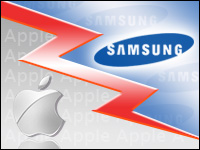
I’ve been having so much fun lately that I may have missed something, but let me ask — have we already reached the end of the customer experience trend? I think CX still has a lot of life in it, but let me play devil’s advocate for a moment.
“CX” is a nebulous term and idea, and its discussion leads to all kinds of confusion about its meaning. Is CX about how the customer uses or engages with your product? Is it about the idea of turning your product or service into an experience? Is it more holistic — and if so, what’s that all about?
First off, some threads of CX are not new. For instance Joe Pine was talking and writing about it in the last century (1999, lol!) in his excellent book, The Experience Economy. Pine and coauthor Jim Gilmore have been building on that idea all these years, and they’ve added new insights to the original idea.
Ethereal vs. Concrete
Basically, they thought of CX almost like you’d think about a maturation process. Things go from commodity raw materials to branded products to services to (hopefully) experiences.
The classic example is coffee beans that traverse a path from bulk beans to roasted and ground product to service at a counter to experience at a hip coffee shop that offers good sounds and lighting and gets five bucks for a cup. I’ve written about this before, and you know it almost intuitively.
Another school of thought obsesses over the user interface, the store, or whatever is central to the moment of the purchase. That’s a more narrow definition and one that’s taking the original idea down its own trajectory to the moment of transaction.
Here’s why I can make the case that CX is over — though in my heart, I don’t believe it fully. I prefer a different interpretation of the time we live in and the importance of how we reach out to customers via what passes for some kind of experience.
Since no single definition suffices for me, let me just say that I’d rather we talked about Geoffrey Moore’s idea of “whole product” rather than messing around with trying to figure out what an “experience” is.
Experience is ethereal and philosophical, while whole product is much more concrete. Whole product is CX and a bit more, because it explicitly incorporates the notion of an end-to-end process that even the best definitions of “CX” only allude to.
Philosophical CX may be more CRM, while concrete CX is all about business process management, or BPM. In mature markets, which we seem to have an abundance of these days, customers buy whole product, which typically includes the core thingie plus the policies, practices and other seemingly extraneous attributes that the company brings to the customer relationship.
It’s About the Ecosystem
We could argue that a low-priced but more than adequate product that comes with no obvious policies and practices bucks this trend. Ah, but the low-priced and adequate product has been engineered to be so intuitive that it doesn’t need those things — and so they are there even if absent.
A couple of decades ago, you might have bought a wireless phone for the convenience of being able to make calls from anywhere. All phones and services were about the same, and we made purchase decisions based on simple attributes like flip phone style vs. candy bar shape. That was about it.
You might have selected a service based on strength of signal or bars, but the vendors did a pretty good job of never letting a rival get too far ahead by merging aggressively.
OK, then things got complicated — first by BlackBerry and then by Apple. RIM gave us a big screen and keypad for email, while Apple gave us a true mobile lifestyle that — more than providing communication — freed us from lugging around laptops. When that happened, the market went into mature phase, and suddenly attributes that Apple was only midwife for became part of the whole product.
I am talking about the ecosystem of affiliated applications — and if you didn’t have an ecosystem, you weren’t a contender. Add in the Apple Store near you with its Genius Bar and well staffed call center, and the build-out of the CX was complete. Today, vendors compete on ecosystems and stores.
So the mobile communications market is a great example of CX reduction — and as you can see, it more resembles the Pine and Gilmore idea of an experience than the how-can-we-make-buying-our-stuff-even-easier school of thought. The latter seems a pale imitation of the real McCoy to me.
So, to round it out, is CX over? Have we gotten so enamored of it as a tool for “accelerating sales” (I love the naivet of that phrase) that it has lost its punch? Or have we forgotten the importance of what it means?
If we approach CX as an accelerator rather than as the way we need to do business in an era of mature markets where people need to be attended to, then maybe. However, savvy companies seeking ways to keep from sliding back down the curve to commodity status will see plenty of life in the idea of CX even though it has too many meanings. Better, I think, to call it what it is: “whole product orientation.”























































